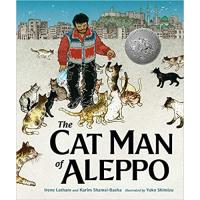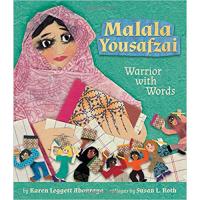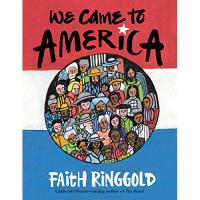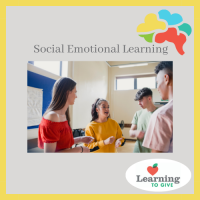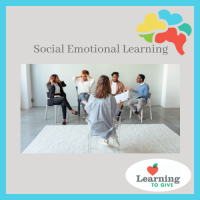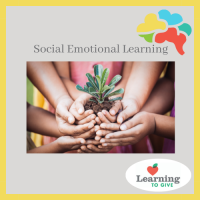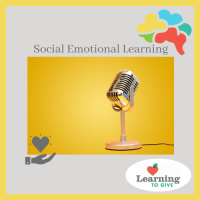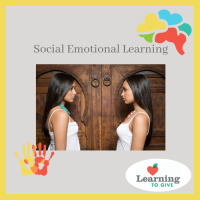This is the true story of a man who stayed behind in his community when war struck his Middle Eastern country of Syria. While bombs fall and everyone else seeks safety, we see his commitment to maintaining the home and community he loves. When most of his neighbors left to find safety, he...
In this book, we learn the true story of Malala Yousafzai, a Pashtun Muslim girl living in Pakistan who was shot for daring to be a girl demanding an education. Malala survived and decided to speak up for human rights and the right to universal childhood education. Her path inspires others...
In “We Came to America,” Faith Ringgold reminds us that America is made up of diverse groups from all over the world. She highlights Indigenous Americans who were here before others, as well as enslaved Africans who did not immigrate but were forced to come to America. Other groups came from...
After a meaningful session or day together, a reflective writing prompt can help young people internalize, sort, or articulate their thoughts and feelings. A great tool for SEL and personal reflection, exit tickets provide a prompt to bring thoughts to a close before moving out the door. Designed to be handed to the facilitator as a "ticket" out the door, they may also be kept private if someone doesn't want to share their thoughts in the moment.
One of the most effective ways to support youth social emotional growth is with regular check-ins. Use ice breakers to give youth a chance to listen, talk, reflect, build empathy, and discuss critical thinking and issues. The following conversation prompts are organized by the SEL categories and the type of engagement they bring out.
This activity prompts young people to think and speak critically with their peers about a real-world topic. They consider how the topic applies to them and how it might impact others. During this activity, youth share their opinions, debate their positions, and sometimes even change sides as their opinions shift to accommodate new information or other viewpoints. This activity introduces young people to the concepts of bias and stereotypes by discussing how the judgments we make can be very damaging.
Young people create a Public Service Announcement in order to inform people about an issue and challenge them to take action in order to make a difference. This activity guides them to select an issue, research ways to address the issue, and make a call to action.
This project is a simulation meant to guide participants through the process of organizing a protest/demonstration. Participants are asked to identify a problem they want to solve and then plan a nonviolent protest/demonstration while being conscious of safety, resources, community norms, and ethical behavior. The hope is that this activity might inspire the next Greta Thunberg or Malala Yousafzai to take action and create change!
The "Current Event Check-In" is an Everyday SEL practice. It is a culturally responsive version of the daily emotion check-in; it offers youth the opportunity to check-in regarding the current events in their communities. In order to have a social awareness of one’s community, youth must be able to inquire, discuss, and share their thoughts and opinions about the events in their community on a regular basis.
Many American citizens with a "hyphenated ethnicity, race, or identity" experience a double consciousness. In this activity, youth look at the hyphen from the perspective of another person, reflecting upon their own opinions about how the hyphen is used. Hyphen-Stories is inspired by an article by Dena Simmons called, "Why We Can't Afford Whitewashed Social-Emotional Learning."
